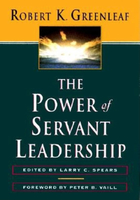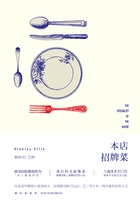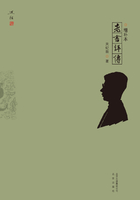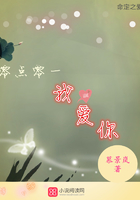On his return to Moscow from the army, Nicholas Rostov was welcomed by his home circle as the best of sons, a hero, and their darling Nikolenka; by his relations as a charming, attractive, and polite young man; by his acquaintances as a handsome lieutenant of hussars, a good dancer, and one of the best matches in the city.
The Rostovs knew everybody in Moscow. The old count had money enough that year, as all his estates had been remortgaged, and so Nicholas, acquiring a trotter of his own, very stylish riding breeches of the latest cut, such as no one else yet had in Moscow, and boots of the latest fashion, with extremely pointed toes and small silver spurs, passed his time very gaily. After a short period of adapting himself to the old conditions of life, Nicholas found it very pleasant to be at home again. He felt that he had grown up and matured very much. His despair at failing in a Scripture examination, his borrowing money from Gavril to pay a sleigh driver, his kissing Sonya on the sly- he now recalled all this as childishness he had left immeasurably behind. Now he was a lieutenant of hussars, in a jacket laced with silver, and wearing the Cross of St. George, awarded to soldiers for bravery in action, and in the company of well-known, elderly, and respected racing men was training a trotter of his own for a race. He knew a lady on one of the boulevards whom he visited of an evening. He led the mazurka at the Arkharovs' ball, talked about the war with Field Marshal Kamenski, visited the English Club, and was on intimate terms with a colonel of forty to whom Denisov had introduced His passion for the Emperor had cooled somewhat in Moscow. But still, as he did not see him and had no opportunity of seeing him, he often spoke about him and about his love for him, letting it be understood that he had not told all and that there was something in his feelings for the Emperor not everyone could understand, and with his whole soul he shared the adoration then common in Moscow for the Emperor, who was spoken of as the "angel incarnate."
During Rostov's short stay in Moscow, before rejoining the army, he did not draw closer to Sonya, but rather drifted away from her. She was very pretty and sweet, and evidently deeply in love with him, but he was at the period of youth when there seems so much to do that there is no time for that sort of thing and a young man fears to bind himself and prizes his freedom which he needs for so many other things. When he thought of Sonya, during this stay in Moscow, he said to himself, "Ah, there will be, and there are, many more such girls somewhere whom I do not yet know. There will be time enough to think about love when I want to, but now I have no time." Besides, it seemed to him that the society of women was rather derogatory to his manhood. He went to balls and into ladies' society with an affectation of doing so against his will. The races, the English Club, sprees with Denisov, and visits to a certain house- that was another matter and quite the thing for a dashing young hussar!
At the beginning of March, old Count Ilya Rostov was very busy arranging a dinner in honor of Prince Bagration at the English Club.
The count walked up and down the hall in his dressing gown, giving orders to the club steward and to the famous Feoktist, the Club's head cook, about asparagus, fresh cucumbers, strawberries, veal, and fish for this dinner. The count had been a member and on the committee of the Club from the day it was founded. To him the Club entrusted the arrangement of the festival in honor of Bagration, for few men knew so well how to arrange a feast on an open-handed, hospitable scale, and still fewer men would be so well able and willing to make up out of their own resources what might be needed for the success of the fete. The club cook and the steward listened to the count's orders with pleased faces, for they knew that under no other management could they so easily extract a good profit for themselves from a dinner costing several thousand rubles.
"Well then, mind and have cocks' comb in the turtle soup, you know!"
"Shall we have three cold dishes then?" asked the cook.
The count considered.
"We can't have less- yes, three… the mayonnaise, that's one," said he, bending down a finger.
"Then am I to order those large sterlets?" asked the steward.
"Yes, it can't be helped if they won't take less. Ah, dear me! I was forgetting. We must have another entree. Ah, goodness gracious!" he clutched at his head. "Who is going to get me the flowers? Dmitri! Eh, Dmitri! Gallop off to our Moscow estate," he said to the factotum who appeared at his call. "Hurry off and tell Maksim, the gardener, to set the serfs to work. Say that everything out of the hothouses must be brought here well wrapped up in felt. I must have two hundred pots here on Friday."
Having given several more orders, he was about to go to his "little countess" to have a rest, but remembering something else of importance, he returned again, called back the cook and the club steward, and again began giving orders. A light footstep and the clinking of spurs were heard at the door, and the young count, handsome, rosy, with a dark little mustache, evidently rested and made sleeker by his easy life in Moscow, entered the room.
"Ah, my boy, my head's in a whirl!" said the old man with a smile, as if he felt a little confused before his son. "Now, if you would only help a bit! I must have singers too. I shall have my own orchestra, but shouldn't we get the gypsy singers as well? You military men like that sort of thing."
"Really, Papa, I believe Prince Bagration worried himself less before the battle of Schon Grabern than you do now," said his son with a smile.
The old count pretended to be angry.
"Yes, you talk, but try it yourself!"
And the count turned to the cook, who, with a shrewd and respectful expression, looked observantly and sympathetically at the father and son.
"What have the young people come to nowadays, eh, Feoktist?" said he. "Laughing at us old fellows!"
"That's so, your excellency, all they have to do is to eat a good dinner, but providing it and serving it all up, that's not their business!
"That's it, that's it!" exclaimed the count, and gaily seizing his son by both hands, he cried, "Now I've got you, so take the sleigh and pair at once, and go to Bezukhob's, and tell him 'Count Ilya has sent you to ask for strawberries and fresh pineapples.' We can't get them from anyone else. He's not there himself, so you'll have to go in and ask the princesses; and from there go on to the Rasgulyay- the coachman Ipatka knows- and look up the gypsy Ilyushka, the one who danced at Count Orlov's, you remember, in a white Cossack coat, and bring him along to me."
"And am I to bring the gypsy girls along with him?" asked Nicholas, laughing. "Dear, dear!…"
At that moment, with noiseless footsteps and with the businesslike, preoccupied, yet meekly Christian look which never left her face, Anna Mikhaylovna entered the hall. Though she came upon the count in his dressing gown every day, he invariably became confused and begged her to excuse his costume.
"No matter at all, my dear count," she said, meekly closing her eyes. "But I'll go to Bezukhov's myself. Pierre has arrived, and now we shall get anything we want from his hothouses. I have to see him in any case. He has forwarded me a letter from Boris. Thank God, Boris is now on the staff."
The count was delighted at Anna Mikhaylovna's taking upon herself one of his commissions and ordered the small closed carriage for her.
"Tell Bezukhov to come. I'll put his name down. Is his wife with him?" he asked.
Anna Mikhaylovna turned up her eyes, and profound sadness was depicted on her face.
"Ah, my dear friend, he is very unfortunate," she said. "If what we hear is true, it is dreadful. How little we dreamed of such a thing when we were rejoicing at his happiness! And such a lofty angelic soul as young Bezukhov! Yes, I pity him from my heart, and shall try to give him what consolation I can."
"Wh-what is the matter?" asked both the young and old Rostov.
Anna Mikhaylovna sighed deeply.
"Dolokhov, Mary Ivanovna's son," she said in a mysterious whisper, "has compromised her completely, they say. Pierre took him up, invited him to his house in Petersburg, and now… she has come here and that daredevil after her!" said Anna Mikhaylovna, wishing to show her sympathy for Pierre, but by involuntary intonations and a half smile betraying her sympathy for the "daredevil," as she called Dolokhov. "They say Pierre is quite broken by his misfortune."
"Dear, dear! But still tell him to come to the Club- it will all blow over. It will be a tremendous banquet."
Next day, the third of March, soon after one o'clock, two hundred and fifty members of the English Club and fifty guests were awaiting the guest of honor and hero of the Austrian campaign, Prince Bagration, to dinner.
On the first arrival of the news of the battle of Austerlitz, Moscow had been bewildered. At that time, the Russians were so used to victories that on receiving news of the defeat some would simply not believe it, while others sought some extraordinary explanation of so strange an event. In the English Club, where all who were distinguished, important, and well informed forgathered when the news began to arrive in December, nothing was said about the war and the last battle, as though all were in a conspiracy of silence. The men who set the tone in conversation- Count Rostopchin, Prince Yuri Dolgorukov, Valuev, Count Markov, and Prince Vyazemski- did not show themselves at the Club, but met in private houses in intimate circles, and the Moscovites who took their opinions from others- Ilya Rostov among them- remained for a while without any definite opinion on the subject of the war and without leaders. The Moscovites felt that something was wrong and that to discuss the bad news was difficult, and so it was best to be silent. But after a while, just as a jury comes out of its room, the bigwigs who guided the Club's opinion reappeared, and everybody began speaking clearly and definitely. Reasons were found for the incredible, unheard-of, and impossible event of a Russian defeat, everything became clear, and in all corners of Moscow the same things began to be said. These reasons were the treachery of the Austrians, a defective commissariat, the treachery of the Pole Przebyszewski and of the Frenchman Langeron, Kutuzov's incapacity, and (it was whispered) the youth and inexperience of the sovereign, who had trusted worthless and insignificant people. But the army, the Russian army, everyone declared, was extraordinary and had achieved miracles of valor.The soldiers, officers, and generals were heroes. But the hero of heroes was Prince Bagration, distinguished by his Schon Grabern affair and by the retreat from Austerlitz, where he alone had withdrawn his column unbroken and had all day beaten back an enemy force twice as numerous as his own. What also conduced to Bagration's being selected as Moscow's hero was the fact that he had no connections in the city and was a stranger there. In his person, honor was shown to a simple fighting Russian soldier without connections and intrigues, and to one who was associated by memories of the Italian campaign with the name of Suvorov. Moreover, paying such honor to Bagration was the best way of expressing disapproval and dislike of Kutuzov.
"Had there been no Bagration, it would have been necessary to invent him," said the wit Shinshin, parodying the words of Voltaire. Kutuzov no one spoke of, except some who abused him in whispers, calling him a court weathercock and an old satyr.
All Moscow repeated Prince Dolgorukov's saying: "If you go on modeling and modeling you must get smeared with clay," suggesting consolation for our defeat by the memory of former victories; and the words of Rostopchin, that French soldiers have to be incited to battle by highfalutin words, and Germans by logical arguments to show them that it is more dangerous to run away than to advance, but that Russian soldiers only need to be restrained and held back! On all sides, new and fresh anecdotes were heard of individual examples of heroism shown by our officers and men at Austerlitz. One had saved a standard, another had killed five Frenchmen, a third had loaded five cannon singlehanded. Berg was mentioned, by those who did not know him, as having, when wounded in the right hand, taken his sword in the left, and gone forward. Of Bolkonski, nothing was said, and only those who knew him intimately regretted that he had died so young, leaving a pregnant wife with his eccentric father.















